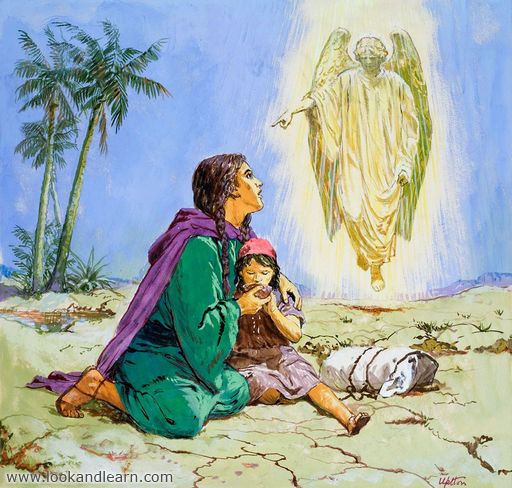This is Hagar the Mother of Ishmael
In the hustle and bustle of our daily lives, it’s easy to feel overlooked and unheard. We may see countless people, yet it can often feel as though no one truly sees or understands us. In these moments of loneliness and despair, it’s comforting to know that we serve a God who sees and hears us, no matter how abandoned or outcast we may feel. In the book of Genesis, we are given a powerful testament to the providence of Yahweh in the story of Hagar, a woman who found herself in a seemingly hopeless situation. Amid the Mess, we will learn that God sees and hears us because he desires to mend our trauma that stems from a broken relationship with Him. Also, we will see that God is faithful to the outcast, He provides, and that God will carry out His purpose even when we go off plan from His original purpose.
The world theologies and the womanist movement are fascinating and relate their origin from Father Abraham, Mother Sarah, and Hagar but today this article is not about any form of scholastic or religious argument but simply a truth one should learn from how the Bible speaks about the woman, “Hagar”!
Genesis 16 introduces us to Hagar, a maidservant to Sarah, the wife of Abraham. After Sarah was unable to bear children, she gave Hagar to Abraham with the hope of building a family through her. However, once Hagar conceived, tensions arose between the two women, and Hagar found herself mistreated and abandoned in the wilderness. In her distress, Hagar cried out to the Lord, and here we encounter the profound truth that God saw her affliction and heard her cries.
This pivotal moment in the life of Hagar speaks volumes about the character of our God. Hagar, cast out and alone, encountered the God who sees and hears. In her moment of despair, she found herself in the presence of a God who not only acknowledged her pain but also promised to provide for her and her child. This encounter is a testament to the unwavering love and compassion of Yahweh, who extends His care to the marginalized and downtrodden.
The narrative of Hagar serves as a poignant reminder that we serve a God who is intimately aware of our struggles and hardships. When we feel abandoned and forgotten, it is essential to remember that our cries do not fall on deaf ears. Just as God saw Hagar, He sees us in our most vulnerable moments. He sees the single parent struggling to make ends meet, the outcast yearning for acceptance, and the broken-hearted searching for hope. When the world turns a blind eye, the God of seeing continues to watch over us with unwavering compassion.
Not only does Yahweh see and hear our cries, but He also moves to provide for our needs. Hagar’s story takes a miraculous turn when God provides a well of water for her in the wilderness. This act of divine providence illustrates God’s commitment to meeting the needs of the marginalized and abandoned. It serves as a powerful reassurance that no matter how dire our circumstances may seem, we can trust in the loving provision of our Heavenly Father.
The promise of Yahweh’s provision extends beyond the physical realm. It encompasses provision for our spiritual, emotional, and relational needs as well. Just as He provided for Hagar, God continues to provide comfort, strength, and newfound purpose to those who feel overlooked and marginalized. Whether it be through the kindness of others, unexpected opportunities, or a renewed sense of hope, God’s provision is boundless and extends to every area of our lives.
The story of Hagar invites us to ponder how God sees and hears the cries of those whom society has marginalized. It challenges us to emulate His character by extending compassion and care to those who feel abandoned by the world. As followers of the God who sees us, we are called to be a beacon of hope and provision for the marginalized and outcast, reflecting His love and compassion in our interactions and relationships.
In the narrative of Hagar and throughout the Scriptures, we encounter the profound truth that our God is not distant or indifferent to our struggles. He is the God who sees and hears, the one who provides, and the one who extends His unwavering love to the abandoned and marginalized. Therefore, let us take comfort in the knowledge that no matter where we find ourselves, we serve a God who sees, hears, and provides for us in immeasurable ways. His love knows no bounds, and His compassion reaches the deepest recesses of our hearts.
In conclusion, the story of Hagar serves as a timeless testament to the providence of Yahweh, the God who sees and hears. It is an assurance to all who feel abandoned, outcast, or marginalized that we serve a God who cares deeply for us. As we navigate the complexities of life, let us hold steadfast to the unwavering truth that our cries do not fall on deaf ears. The God of seeing and hearing is with us, ready to provide and extend His boundless love to all who seek Him as He did Ishmael in a desert by providing a well not just a jug of water. This is the profound promise of Yahweh, our God who sees and hears and provides.
Don’t forget this Sunday and always that God is your present help in times of need…….



